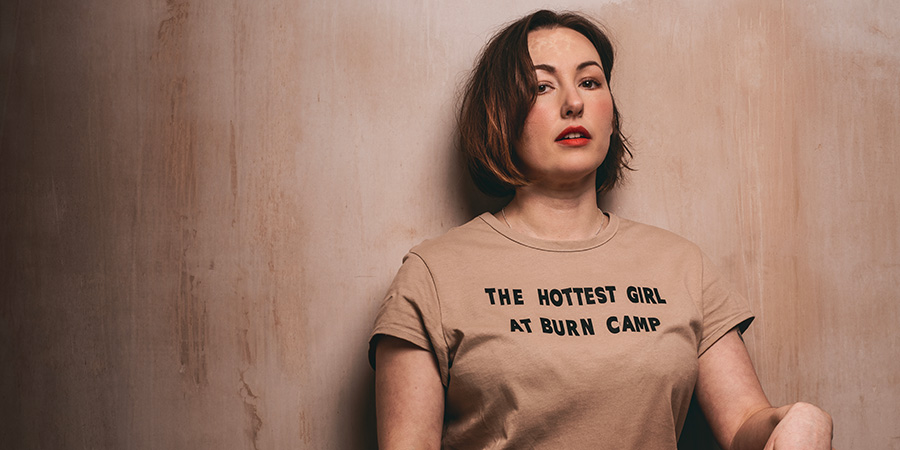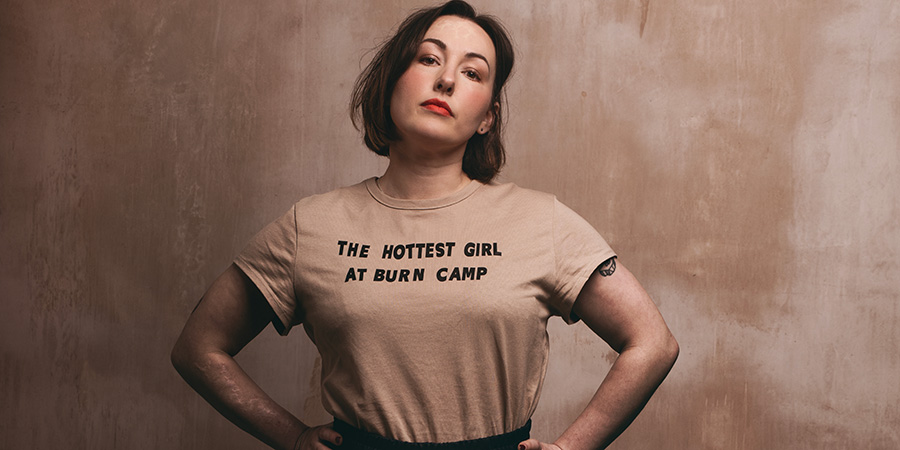How Krystal Evans's life was improved in the aftermath of a house fire

Krystal Evans's new show, The Hottest Girl at Burn Camp, is a debut hour about the near-death experience - narrowly escaping a house fire - that changed her life and made it funnier.
We sat down to find out a bit more about how such an horrific event can become an Edinburgh Fringe show.
As an American comedian based in Scotland, what differences have you noticed in the comedy scenes between the two countries?
I actually started over here! I did a couple gigs in the US, but I was probably on mushrooms or something so they are a blur. So I'm a weirdo comedian who is culturally American but my stand-up has been shaped by the UK sort of humour/sensibility. But now that I've gone back and forth a bit, the most obvious one is the class identity stuff over here. It's such a huge factor in how you guys view yourselves and each other, and at the same time it's very complex and I can't be bothered trying to figure out the nuances so now I usually just say to audiences now, "Listen, I grew up poor, I'm not so poor now, I don't know if either of those things are good or bad but you can all suck it".
Are there any challenges or advantages?
I feel like I can get away with saying things over here that Brits maybe can't because I'm coming at your culture with observations as an outsider. On the flip side though, American audiences are so much more giving. They'll laugh at anything, honestly. At a new material night back home, I walked out on stage and bent over and directly farted into the microphone. I got a standing ovation.
How do you navigate those nuances to connect with a diverse audience?
I try to never rely on trite, easy jokes and lean toward the more ethereal and cerebral. I think if you can tap into universal truths, humour can surpass all cultures. And as previously brushed upon, I eat a lot of gassy foods before a gig so I've always got a fart built up that I can rip right into the mic.

With such a diverse range of topics in your show, from tragedy to mental illness, what message or takeaways do you hope audiences will have after experiencing your performance?
Honestly, I hope I can make people see that going through tough things isn't a life sentence. Humour and writing jokes has helped me get through hard shit, but for someone else, it might be different. Recovery doesn't have to look one way.
Is there a specific childhood memory that you've turned into a joke that your therapist would cringe at but the audience loves?
Oh there's probably tons. I make loads of very specific jokes about me actually escaping the fire, which I think some people find harrowing to listen to, but it's maybe like one of those really painful deep tissue massages. We go through hell and we all feel great afterwards together. That's one thing that makes it so satisfying for me, too - no one else could make these jokes but me.
Can you share your secret recipe for turning tragedy into comedy gold? Asking for a friend who accidentally superglued their hand to their face.
I won't lie, it's not easy. Not all the jokes I've written for this show worked. It's just like anything; trial and error. Another thing is you have to make sure that the audience knows that you're okay with them laughing. It also helped me to talk it through with other comedians. Comedians are like, really, really funny.
I always come back to honesty. When I talked the show through with my friend Heather, I can't tell you how many times I said "...anyways yeah, but I can't say that on stage". And she'd be like "Krystal, you have to. That's the funniest part."
Help us publish more great content by becoming a BCG Supporter. You'll be backing our mission to champion, celebrate and promote British comedy in all its forms: past, present and future.
We understand times are tough, but if you believe in the power of laughter we'd be honoured to have you join us. Advertising doesn't cover our costs, so every single donation matters and is put to good use. Thank you.
Love comedy? Find out more